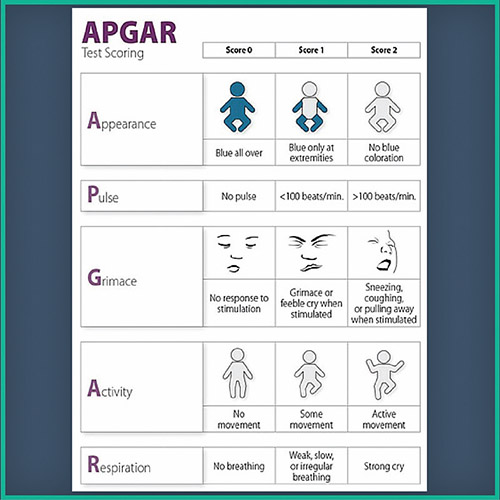



From the time we’re born, we are tested. Whether it’s measurements at or right after birth by our caretakers (think Apgar scores) to entrance interviews when applying to desirable pre-schools, by the time we are 2 or 3 years old, we’ve already been thoroughly subjected to being graded. This societal custom doesn’t stop then; in fact, it only increases in scope and intensity as we age. With this increased scrutiny comes increased stress as many fear the demands of regular testing and of proving they measure up.
Educators have designed many different measures and gauges of performance, but no matter the different names they call their systems, they all amount to the same thing: At specified intervals of your life, you’ll be receiving a “report card,” a transient record that will state how you measured up objectively during the period in question and even in many cases how you comported yourself subjectively during that time. This report card traditionally was sent to your parents, as much to satisfy them that you’re actually spending your time constructively.
The various grading systems fall into several recognized categories. First we have the “alpha” school that consists of letters connoting performance levels: E, VG, G, D and F, representing grades of Excellent, Very Good, Good, and unmentionable. A variant consists of the letters A, B and C substituting for E, VG, and G above. You might run across the alpha system in first grade, only to face it again years later in a prestigious law school grading system. A famous collegiate
once quipped that the alpha system actually represented the following grades: A equaled “Average”; B, “Bad”; C, “Catastrophic”; D, “Devastating”; and F, “Fatal!”
The “numerical“ school familiarly assigns to each student a numerical score based on some combination of test scores during the semester with class participation and conduct either adding to or subtracting from the raw test scores. Other uses for the numerical scoring system are grading recognized aptitude and achievement tests (SATs, LSATs, MCATs, etc.) as well as Advanced Placement tests to measure individual subject proficiency.
In some parts of the world, one enters a surreal numerical grading system exemplified by the grading scheme in effect at certain foreign universities. In these higher educational institutions, a nominal numerical grading system is in effect, based on course grades given only at the end of the school year ranging from a theoretical grade of 10 down to a passing grade of 6. The reality is that students are informed at the beginning of their studies at these schools that no matter how well they master the material, “no one ever receives a 10,” so they might as well be prepared to be “satisfied with a 9 or less.” That represents one of the rare systems today where students are not told to aim for the stars! This system is reminiscent of the automatic transmission gears that most of us never use, most people unsure after years of driving exactly how or when to switch the lever from “Drive” to “2” or “1” gears, yet manufacturers continue to include them as standard equipment in their new models.
Recreation time in the modern age is frequently accompanied by the compilation of grades in the form of athletic statistics, individual and team-based. Aside from grading how we play, we also grade what we eat. Consider yourself among the most educated if you can tell the difference between prime and choice cuts of beef and first cut and front cut of brisket or pastrami, or differentiate between whole milk, skimmed milk or the 1% or 2% variety. Mankind’s taste buds in modern, industrialized societies have evolved along with these grading systems such that if a person spends his time exclusively drinking, for example, skimmed milk, very soon whole milk will begin to taste like the richest cream (at a fraction of the calories)!
As we leave the school age, and enter the workforce, we are often introduced to employment grades, especially if we work in a government bureaucracy or as a teacher. Salaries are pegged to these grades, making them critical steps on a ladder to success.
As we age, other numbers take on greater and greater importance. For example, one’s blood pressure and serum cholesterol numbers can be easily recalled as needed, not to mention the ubiquitous eight-digit Social Security number, which, though among your most important numbers during your lifetime, is destined to be reassigned to a total stranger the moment you die! This current allocation system in effect can result in some rather bizarre number reassignments: Imagine the impact of Martin Luther King’s descendants being assigned Robert E. Lee’s grandchild’s number or David Duke and Abe Foxman’s family exchanging numbers in the future.
As we enter our final years, we likely become less and less concerned with “making the grade,” passing tests or otherwise “measuring up.” Rather, more basic to everyday life are things like sitting, standing, eating, conversing with family and friends and hopefully maintaining good health, and finally, reminiscing about the good old days. In the end, we hope, our lives “add up,” no matter the grading system society chooses to employ.
Joseph Rotenberg, a frequent contributor to The Jewish Link, has resided in Teaneck for over 45 years with his wife, Barbara. His first collection of short stories and essays, entitled “Timeless Travels: Tales of Mystery, Intrigue, Humor and Enchantment,” was published in 2018 by Gefen Books and is available online at Amazon.com. He is currently working on a follow-up volume of stories and essays. © 2020 Redmont Tales LLC









